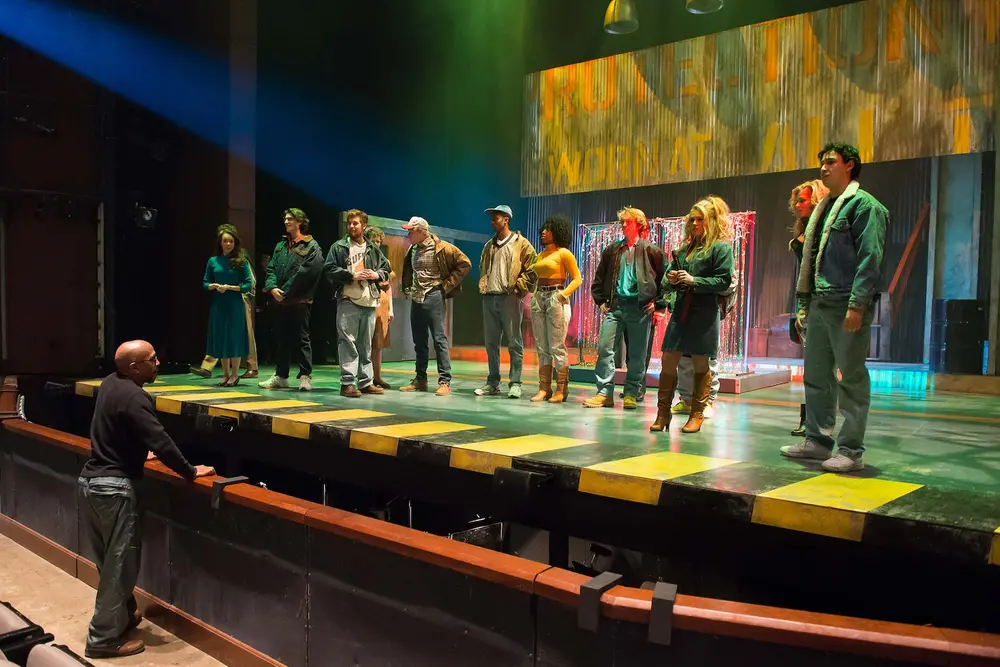School of Drama
Where scene stealers and world builders make the stage.

"My favorite class at CMU was definitely Dramaturgy 4, where my professor asked us to each create our own mock theater company. The fact that our professor gave us the space and time to imagine ourselves as artistic directors showed me that she was invested in our futures as arts leaders."
College of Fine Arts
School of Drama
Since 1914, Carnegie Mellon’s School of Drama has been known as a place for wildly talented and technically masterful scholars of the performing arts. Here, you’ll be plunged into new realities alongside visionaries in every aspect of the craft — weaving together both storylines and costumes, building both characters and sets. Ultimately, you may be among the many CMU graduates who have gone on to win Tony Awards or Emmy Awards. But with or without the hardware, you’ll launch a career that’s creatively fulfilling.
Classes of 2021-2023, Six Months After Graduation
93%
Employed or in Grad School
$42,408
Average Salary
Recent Employers
Self-Employed
City Theatre Company
Amazon Studios
Texas Shakespeare Company
High School Course Requirements
Mix It Up
You’re not just one thing. You’re a scientist. An artist. A technologist. A maker. A writer. Carnegie Mellon has been mixing it up for decades, and whatever you want to pursue, we’ve got the right mix for you.